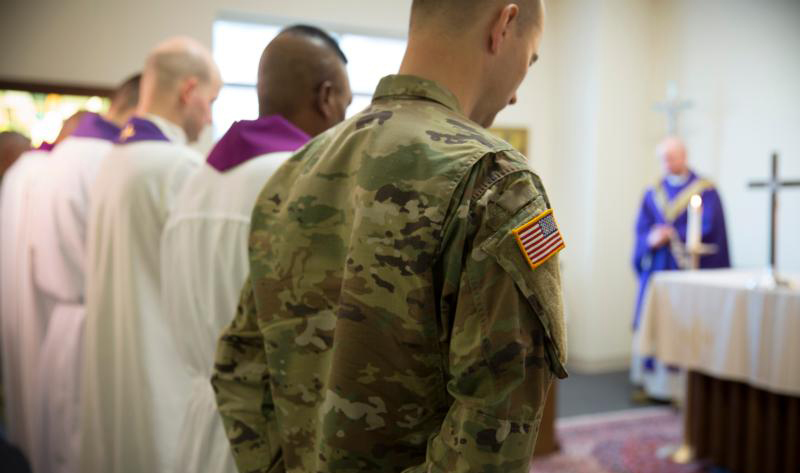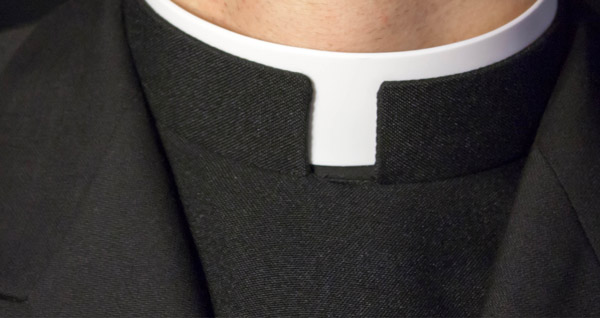
COLUMBIA—On an early Sunday morning in August, Father S. Matthew Gray told the congregation attending Mass in St. Joseph Church that he wouldn’t be seeing them for several weeks.
Unlike many people during late summer, he was not headed off for a much-needed vacation or for a spiritual retreat or sabbatical.
Instead, Father Gray was going to a U.S. Air Force base in Alabama for training — trading in his traditional black suit and white collar for a military uniform. He is one of three priests from the Diocese of Charleston who are also military chaplains.
Father Gray is a chaplain for the U.S. Air Force, currently assigned to the 169th Fighter Wing at the McEntire Joint National Guard Base in Columbia.
Father Bernardino S. Yebra and Father Jeremi Wodecki are with the U.S. Army. Father Yebra is currently stationed at Fort Leonard Wood in Missouri and Father Wodecki is at Fort Benning in Georgia.
The men are offering a crucial service in an era when a dwindling number of Catholic chaplains is serving an increasing number of faithful members in the armed forces.
According to statistics released in 2016 by the U.S. Archdiocese for the Military Services, based in Washington, D.C., 214 active duty priests serve about 325,000 Catholics in the five branches of the U.S. military. It is not nearly enough to supply all of the spiritual support needed by those service members and their families. The U.S. Department of Defense has estimated that about 25 percent of the people in the military are Catholic and these numbers are expected to increase.
The challenge is even more drastic because of priest shortages many dioceses already face. With eight active military installations, South Carolina offers a particularly fertile ground for chaplain work, especially with expected growth at bases like Shaw Air Force Base in Sumter.
A diocesan priest who decides he would like to be a chaplain must first receive permission from his bishop. If the bishop allows it, the priest contacts the branch of the military that interests him and then goes through specialized training to become a chaplain and work in that branch. Priests enter the chaplain corps as officers. Father Gray, for instance, is a first lieutenant.
When a priest leaves to serve in the military, his absence presents a challenge because someone else must take over his work, either in the parish or other ministry where he is assigned. In some parishes, supply priests come in to take over the chaplain’s duties.
At St. Joseph, however, Msgr. Richard D. Harris, pastor, chooses to go it alone. It is a challenge because he also has duties in Charleston as vicar general for the diocese.
“Most of the time, I know several months ahead of time when he is going to be away,” Msgr. Harris said. “We sit down and go over the calendar so I know how to plan and usually everything works out. The work he does in both places is important, so planning is the key.”
Some chaplains in the reserves or National Guard, like Father Gray, are able to alternate between their military commitment and their diocesan work. Generally, he must serve one weekend a month and then for two weeks in the summer.
Others, such as Father Yebra and Father Wodecki, are full time with their units. The priest-chaplains, like any other member of the military, operate with the constant understanding that they could be deployed at any time.


